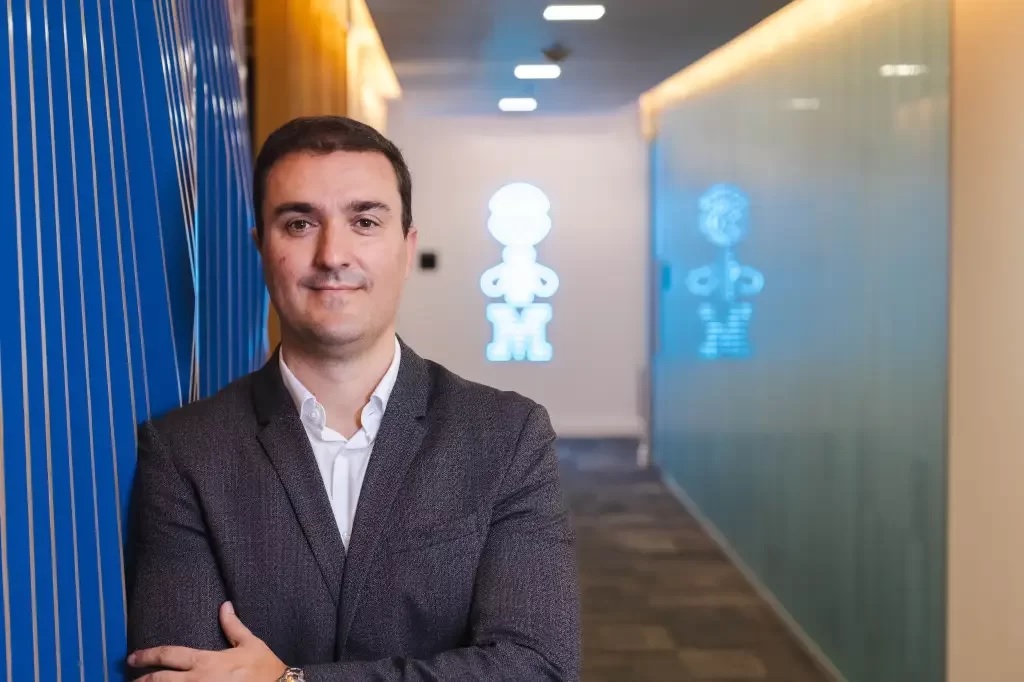Icon of the first phase of modern computing, the century-old IBM has been reinventing itself in recent decades.
The increasing focus of clients on hybrid clouds and a new culture oriented to technology in the digital transformation process have allowed the company to obtain relevant results.
In the last quarterly balance sheet released by the company in October, cloud computing revenue alone increased 11% to US$5.2 billion.
In Brazil, as Marcelo Braga, CEO since January this year, explains, it hasn’t been any different; the growing demand for cybersecurity and the view of technology as an investment, not a cost, have also boosted the local results.

To Forbes Brasil, Braga talks about a new phase for the company that will take place starting in 2025 when IBM expects to deliver its first commercial quantum computer.
The executive reinforces that this movement is symbolic as quantum technology begins to be tested in practice.
A network formed to prepare companies, the Quantum Network, already gathers 210 members, some of them Brazilian, with the objective of testing possible solutions.
“This is a considerable evolution in data processing capacity and, with it, the infinite possibilities for discovering innovations, science, and business,” says Braga, who, in an interview, highlights other impacts of quantum computing and the current technology priorities of the C-Levels.
INTERVIEW
What have been the clients’ priorities when it comes to investing in technology services?
For the C-Level, right now, there are a few. From 4 out of 5 professionals we consulted, the priority is sustainability. ESG is at the top of the strategy of many companies, and technology appears as an important ally, especially in measuring impacts.
In second place comes cybersecurity, which has gained strength in the last two years and continues to be a priority, especially after Brazilian companies have witnessed attacks and were confident that the issue is much closer to reality than we had imagined.
Also because the losses from attacks have become tangible.
Does the development of artificial intelligence also enter the list?
Without a doubt. In the case of AI, we observe an increasing protagonism of technology and a maturing in how companies apply it.
In customer service, process improvement, and the evolution of machine learning and deep learning concepts.
But the most interesting thing in all of this is that we have stopped having AI only as that feature used by chatbots to become a major intelligence interface for companies.
In other words, AI is much more integrated into customers’ digital businesses.
In the last few years, Quantum computing has become one of IBM’s priorities; what advances do we already have concerning the technology?
Today it is already a reality. We have a group of clients and partners that has already reached 210 companies that make up our network that we call Quantum Network.
These companies are already looking at applications, possibilities, and how, in practice, quantum computing can impact their business.
We can see very clearly a direct impact in some sectors.
Finance, oil and gas, and medicine-oriented drug development are three that are benefiting concretely from the technology.
IBM’s goal is to deliver the first commercial quantum computer in 2025. Will that have an impact also in Brazil?
Yes, especially because in this network, we also have Brazilian companies. I see quantum computing as a new alternative for data analysis that will add to what we have today.
Initially, it won’t come to replace our transactions, the way we pay, for example, but it will bring a speed in data processing capacity that will develop new products, solutions, and even markets.
What are some practical examples where quantum computing can be applied?
Security is one of them. If today we still have a limitation in the speed of identifying fraud and acting, with quantum computing, you also evolve in preventing eventual breaches.
The development of vaccines and medicines, for example, which before required decades, can be done in much less time.
Another example is the discovery of molecules that contribute to developing a new battery for electric cars.
All of this will be possible and will accelerate many industries and advances.
From the business point of view, will it be accessible or still restricted to high investments?
Much of quantum computing will be accessible through the cloud. It is unlikely that we will have many computers.
It is designed to be consumed through the cloud to be scalable and democratic.
In other words, I don’t restrict its use only to large companies but also to small, medium, and even startups.
We have moved away from the idea of high investments in data centers to an era of more affordable computing. It only has a reason to exist that way.
Watson, IBM’s AI system, has been in Brazil for seven years and is used by dozens of clients. What changes in AI with quantum computing?
Considering that AI imitates the human way of thinking but for that, it needs time to process and understand, quantum computing accelerates this evolution a lot.
It means that in the era of quantum computing, AI is another technology that takes a leap in evolution and will be fundamental for this new phase of our digital economy.
With information from Forbes

